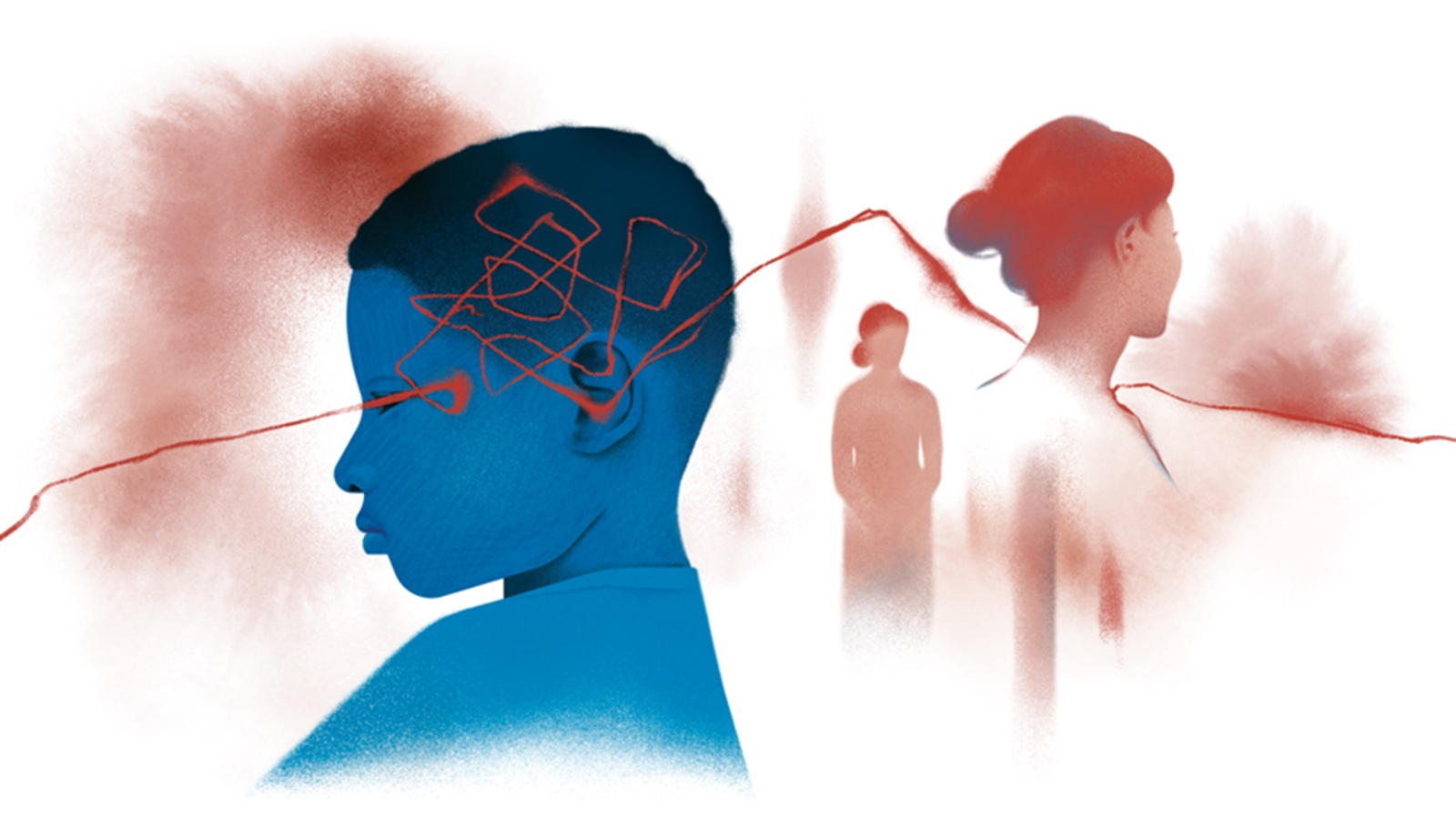Lost Caregivers
Dan Treglia, Associate Professor of Practice, identifies the number of children who have lost parents and caregivers to COVID-19 and how to support them.

To date, more than 200,000 children in the United States have lost a parent or co-residing caregiver to COVID-19. The trauma of losing a caregiver can have lasting effects, says social policy researcher Dan Treglia, Associate Professor of Practice.
“Losing a parent or caregiver can result in depression and symptoms of PTSD,” says Treglia. “It can also have lifelong impacts like increasing the rates of substance or alcohol abuse and reducing educational attainment and employment rates, which is why it’s important to identify these children and intervene sooner rather than later.”
In 2021, the COVID Collaborative—a non-partisan group of experts in public health, education, and the economy—reached out to Treglia to help identify the number of children who had lost a caregiver to the pandemic and to provide concrete recommendations on how to support them.
“Up until that point, there had been no research or substantive policy conversations that looked at the needs of these children,” explains Treglia. “I was presented with an opportunity—an obligation really—to try to quantify this problem and to understand the challenges that these particular children are facing, in order to support and help them.”
As a result, Treglia co-authored the research report, “Hidden Pain: Children Who Lost a Parent or Caregiver to COVID-19 and What the Nation Can Do to Help Them,” with two experts from Nemours Children’s Health and members of the COVID Collaborative. The report, released in December 2021, was the first of its kind.
Treglia’s research has always focused on highly vulnerable populations, including individuals experiencing poverty, housing instability, or homelessness. For him, it was a logical next step to study the consequences of the pandemic for children, a particularly vulnerable group.
The research data shows that as of mid-April 2022, more than 214,000 children have lost a parent or other caregiver that lived with them. Of them, 96,000 children have lost a parent to COVID-19, and over 84,000 children have lost a grandparent-caregiver who lived in the home. More than 16,000 children lost their only in-home caregiver. These losses have disproportionately impacted children who were already vulnerable, including children previously facing significant social and economic adversity.
“The adversities that children might have been facing prior to the pandemic and prior to caregiver loss make resilience through this tragedy all the more challenging. We worry about cascading negative effects. A child may not only be losing a parent, but a family may also be losing the sole breadwinner. A child may have to move, change schools, or experience homelessness, which adds to cascading negative consequences and increases the risk of long-term effects.”
The data show that parent and caregiver loss from COVID-19 disproportionately affected children of color. Non-white children lost caregiving adults at higher rates than their white peers. American Indian, Alaska Native, Native Hawaiian and Pacific Islander children lost caregivers at rates about 3.5 times the rate of white children. Black and Hispanic children lost caregivers at 2 times the rate of white children, while Asian children at 1.4 times that of white children.
The infrastructure to support children who have lost a parent is largely in place and just needs to be brought to bear on the problem. “There's an infrastructure that exists within schools, healthcare settings, community-based organizations, and governments to theoretically provide for these children whose skies have just fallen on them,” Treglia continues. “We need to invest in those infrastructures and in evidence-based practices to make sure we're targeting resources to the children that need them the most.”
Since the release of the report, policymakers have taken notice. The White House announced, via a memo, that they will make a concerted effort to better understand, quantify, and address the long-term effects of COVID-19 and explicitly mentioned the more than 200,000 children that have lost a parent or a caregiver to COVID-19.
“We are seeing people at the federal, state, and county levels begin to take action for this group of children,” says Treglia. “Personally, I'm speaking with anyone who will listen. I've been meeting with policymakers on a regular basis to make them aware of the issue and to highlight the ways our report is actionable. For example, many families are eligible for things like social security survivors benefits and it’s important these families are aware of that.”
The COVID Collaborative has created hiddenpain.us, which includes a clearinghouse of resources to support families, children, and non-profits. Treglia plans to continue working with the Collaborative to better understand what is happening to children who have lost a parent or caregiver, including identifying how many end up in the child welfare system.
“COVID-19 is not over. We're likely to experience other variants and new waves. We see that, on average, a child loses a caregiver for every 4.5 COVID-19 deaths,” says Treglia. “While we are seeing lower infections and deaths, now is the time to focus on this hidden problem and provide resources. We need to act while we have this moment because we don't know when another wave is going to come.”




